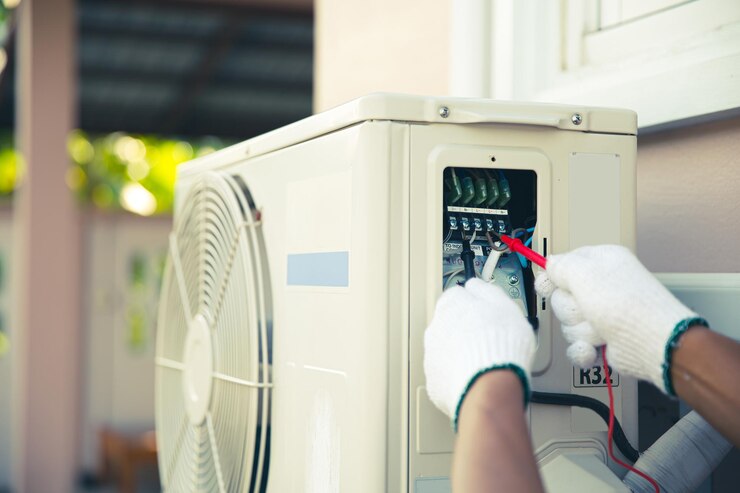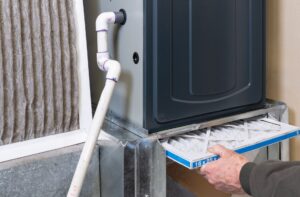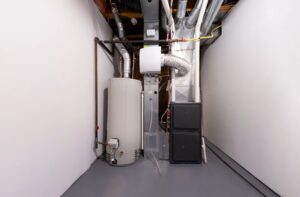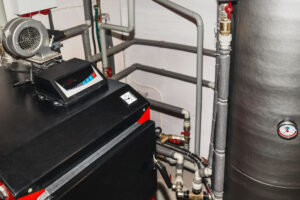Installing a new heating system is a significant decision that can affect your home’s comfort and energy efficiency for years to come. Whether you’re replacing an outdated system or installing one for the first time, understanding the different aspects of heating installation can be overwhelming. It’s important to be well-informed so you can make the best choices for your home.
Understanding the Different Types of Heating Systems
When it comes to heating your home, there are several types of systems to choose from. Understanding these options can help you select the best system for your needs. The most common types include heat pumps, furnaces, and boilers.
Heat pumps are versatile systems that can provide both heating and cooling. They work by transferring heat from the outside air into your home during the winter and reversing the process in the summer. Heat pump installation is an excellent choice for moderate climates and offers energy-efficient performance.
Furnaces, on the other hand, use natural gas, oil, or electricity to heat air that’s then distributed throughout the home via ducts. They are known for their ability to provide reliable and consistent heat. Options range from high-efficiency models to more basic units, depending on your budget and preferences.
Boilers are another option, using water or steam to distribute heat through radiators or radiant floor systems. They are highly efficient and can provide a balanced and comfortable level of heat. Boilers are particularly suited for homes with existing radiator systems.
By understanding the different types of heating systems, you can make a more informed decision that suits your home’s specific heating needs.
The Heating Installation Process Explained
The heating installation process involves several key steps to ensure your new system operates efficiently and reliably. Here’s a detailed look at what you can expect:
1. Assessment and Planning: Our professionals will start with a thorough assessment of your home, including its size, layout, and insulation levels. This helps determine the right type and size of heating system for your needs.
2. Selecting the System: Based on the assessment, you’ll choose the heating system that best fits your requirements. Our technicians will guide you through the options, whether it’s a heat pump, furnace, or boiler.
3. Preparation: Before installation begins, preparations are made, including any necessary electrical or gas line adjustments. This step ensures that all components are ready for installation.
4. Installation: The actual installation involves setting up the main unit, connecting it to your home’s ductwork or heating distribution system, and ensuring proper ventilation. Our professionals make sure to follow all safety and building codes during this process.
5. Testing and Calibration: Once the system is installed, our technicians will test it thoroughly to ensure it operates correctly. They will also calibrate the system to optimize its performance and efficiency.
6. Instruction and Maintenance Tips: After installation, our professionals will provide you with instructions on how to operate and maintain your new heating system. Regular maintenance, such as filter changes and system checks, will be necessary to keep the system running smoothly.
Understanding the installation process can help you know what to expect and ensure that everything goes smoothly, leaving you with a reliable and efficient heating system.
Choosing the Right Heating System for Your Home
Selecting the right heating system for your home involves several important factors. The size of your home, your local climate, and your efficiency preferences all play a role in this decision. Here’s how to navigate these considerations:
1. Home Size and Layout: Larger homes typically require more powerful heating systems to distribute heat evenly. Smaller, compact systems may be sufficient for smaller homes or individual rooms.
2. Climate Considerations: Your local climate directly affects the type of heating system you should choose. In colder areas, a robust system like a high-efficiency furnace or boiler may be necessary. In milder climates, a heat pump might be a more energy-efficient option.
3. Efficiency Preferences: Modern heating systems vary greatly in terms of energy efficiency. Look for systems with high Energy Star ratings if long-term savings on energy bills are important to you. Systems like heat pumps are known for their efficient performance.
4. Initial Cost vs. Long-Term Savings: Consider the balance between the initial cost of the system and potential long-term savings. While some systems may have a higher upfront cost, their efficiency can lead to lower operational costs over time.
Consulting with our professionals can help you navigate these factors and ensure you choose a system that meets your specific needs. Our technicians will assess your home and provide expert recommendations tailored to your situation.
Benefits of Professional Heating Installation
Hiring professionals for heating installation comes with several benefits that DIY solutions can’t offer. Here’s why professional installation is crucial:
1. Expertise and Precision: Our professionals have the training and experience to handle heating installations accurately. They follow industry standards and safety codes, ensuring your system operates efficiently and safely.
2. Safety: Installing a heating system involves dealing with complex components, including gas lines and electrical wiring. Our technicians ensure all connections are secure and functioning correctly, reducing the risk of hazards.
3. Warranty Protection: Many heating systems come with manufacturer warranties that require professional installation. Doing it yourself could void the warranty, leaving you unprotected if something goes wrong.
4. Time and Convenience: Professional installation saves you time and frustration. Our professionals handle all aspects of the installation, from preparation to testing, allowing you to focus on other important tasks.
5. Ongoing Support and Maintenance: Beyond installation, professionals can provide valuable ongoing support, including routine maintenance and emergency repairs. This ensures your system remains in good working order for years to come.
Hiring us for your heating installation ensures you benefit from expert service and peace of mind. Our technicians are committed to delivering a seamless installation experience.
Conclusion
Selecting and installing the right heating system is essential for maintaining comfort and efficiency in your home. By understanding the different types of heating systems, the installation process, and the importance of professional services, you can make informed decisions. Ensuring you have a system that meets your specific needs and is installed correctly can lead to long-term satisfaction and reliability.
At Volpe Service Company, we are dedicated to providing high-quality heating installation in East Hanover. Contact us today to discuss your heating needs and schedule a consultation with our skilled professionals. Let us help you create a comfortable and energy-efficient home.





